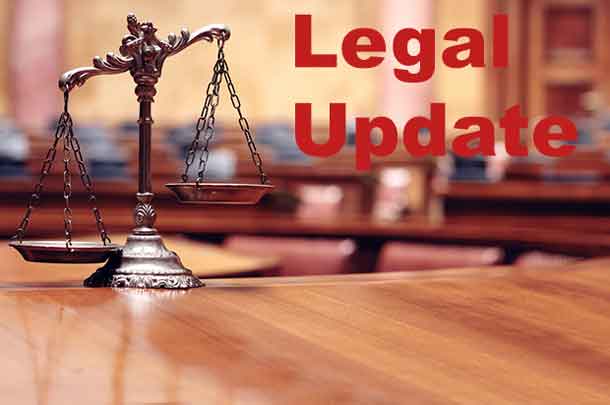Introduction
The loss of a loved one is a profoundly devastating experience, especially when it results from another party’s negligence or misconduct. In such situations, pursuing a wrongful death claim can provide some measure of justice and financial relief for the bereaved family. Understanding the essential elements of a wrongful death case is crucial for successfully navigating the legal process. If you are facing this unfortunate situation, consulting a wrongful death attorney in Atlanta, GA, can provide the expertise and support needed to pursue your claim effectively.
Photo by Karolina Kaboompics: https://www.pexels.com/photo/woman-with-band-aid-on-her-face-5207298/
The Role of a Wrongful Death Attorney in Atlanta, GA
A wrongful death attorney in Atlanta, GA, plays a vital role in helping families navigate the complexities of wrongful death claims. These legal professionals possess the experience and knowledge necessary to handle such sensitive cases, ensuring that families receive the compensation they deserve. An attorney will guide you through each step of the process, from gathering evidence to representing your interests in court.
Essential Elements of a Wrongful Death Case
To establish a successful wrongful death claim, several critical elements must be proven. These elements form the foundation of the case and are essential for demonstrating that the defendant’s actions directly caused the deceased’s death. The primary elements include:
Duty of Care
The first element in a wrongful death case is establishing that the defendant owed a duty of care to the deceased. Duty of care refers to the legal obligation to act reasonably and prevent harm to others. This duty can arise in various situations, such as:
- Drivers: Have a duty to follow traffic laws and drive safely.
- Medical Professionals: Have a duty to provide competent and professional medical care.
- Property Owners: Have a duty to maintain safe premises for visitors.
- Employers: Have a duty to provide a safe working environment.
Breach of Duty
Once the duty of care is established, the next step is to demonstrate that the defendant breached this duty. A breach occurs when the defendant fails to act as a reasonably prudent person would under similar circumstances. Examples of breach of duty include:
- Negligent Driving: Speeding, distracted driving, or driving under the influence.
- Medical Malpractice: Misdiagnosis, surgical errors, or improper treatment.
- Unsafe Property Conditions: Failing to fix hazardous conditions or provide adequate warnings.
- Workplace Negligence: Ignoring safety protocols or failing to provide necessary protective equipment.
Causation
Causation is a crucial element that links the defendant’s breach of duty to the deceased’s death. The plaintiff must prove that the defendant’s actions (or inactions) directly caused the death. This element often involves two components:
- Cause in Fact: Demonstrating that the death would not have occurred “but for” the defendant’s actions.
- Proximate Cause: Showing that the defendant’s actions were a foreseeable cause of the death and that there were no intervening factors that broke the chain of causation.
Damages
The final element of a wrongful death case is proving that the death resulted in quantifiable damages. Damages can include both economic and non-economic losses, such as:
- Medical Expenses: Costs incurred for medical treatment before the deceased’s death.
- Funeral and Burial Costs: Expenses related to the deceased’s funeral and burial.
- Lost Wages and Benefits: The income and benefits the deceased would have provided to their family.
- Loss of Companionship: The emotional suffering and loss of companionship experienced by the family.
- Pain and Suffering: The pain and suffering endured by the deceased before their death.
Gathering Evidence
Building a strong wrongful death case requires gathering compelling evidence to support each of the essential elements. A wrongful death attorney in Atlanta, GA, will assist in collecting and organizing the necessary evidence, which may include:
Medical Records
Medical records provide crucial documentation of the deceased’s injuries, treatment, and cause of death. These records can help establish causation and demonstrate the extent of the damages incurred.
Accident Reports
Accident reports, such as police reports or workplace incident reports, offer detailed accounts of the events leading to the death. These reports often include witness statements and official findings that can support the claim.
Expert Testimony
Expert testimony from medical professionals, accident reconstructionists, or industry experts can provide valuable insights into the case. These experts can help explain complex concepts and establish causation and breach of duty.
Witness Statements
Statements from witnesses who observed the incident or have relevant information can corroborate the plaintiff’s version of events. Witness testimony can be a powerful tool in proving the defendant’s negligence.
Legal Procedures
Navigating the legal procedures involved in a wrongful death case can be daunting. A wrongful death attorney in Atlanta, GA, will guide you through each step, ensuring that all legal requirements are met. Key procedures include:
Filing a Complaint
The first step in initiating a wrongful death lawsuit is filing a complaint with the appropriate court. The complaint outlines the plaintiff’s allegations, the basis for the claim, and the damages sought.
Discovery Process
During the discovery process, both parties exchange information and evidence related to the case. This phase may involve depositions, interrogatories, and requests for documents.
Settlement Negotiations
Many wrongful death cases are resolved through settlement negotiations. A skilled attorney will negotiate with the defendant’s insurance company or legal representatives to secure a fair settlement for the family.
Trial
If a settlement cannot be reached, the case may proceed to trial. During the trial, both parties present their evidence and arguments, and a judge or jury determines the outcome.
Conclusion
Pursuing a wrongful death claim is a complex and emotionally challenging process. Understanding the essential elements of a wrongful death case—duty of care, breach of duty, causation, and damages—is crucial for building a strong claim. Consulting a wrongful death attorney in Atlanta, GA, can provide the legal expertise and support needed to navigate this difficult time. By gathering compelling evidence and following the appropriate legal procedures, families can seek justice and compensation for their loss. If you have lost a loved one due to another party’s negligence or misconduct, seek the assistance of an experienced attorney to ensure your rights are protected and your case is handled with the care it deserves.







